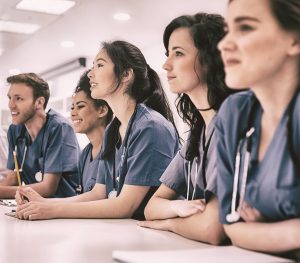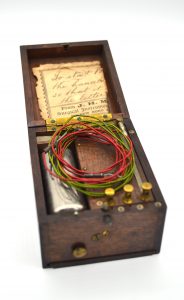HSLS offers a vast amount of 24/7 online content for the health sciences, including what we call subject guides, which bring together important links and information for a specific purpose. You may have already encountered a guide designed specifically for your school, such as Nursing or Pharmacy. Beyond these portals, HSLS also has guides that provide educational content for HSLS workshops, as well as Pitt courses where faculty librarians are guest lecturers. Guides can help you locate special resources, like bioinformatics software or electronic research notebooks that are free for Pitt researchers. Continue reading
Featured Workshop: Painless PubMed
Painless PubMed is one of HSLS’s most popular workshops since PubMed is a go-to resource for searching health sciences literature. While it is likely that you have searched PubMed before, it is important to consider whether you are getting the search results you want or expect. If not, you might want to consider taking Painless PubMed. The Painless PubMed workshop is named appropriately, allowing attendees to use PubMed in a truly painless way. Continue reading
is one of HSLS’s most popular workshops since PubMed is a go-to resource for searching health sciences literature. While it is likely that you have searched PubMed before, it is important to consider whether you are getting the search results you want or expect. If not, you might want to consider taking Painless PubMed. The Painless PubMed workshop is named appropriately, allowing attendees to use PubMed in a truly painless way. Continue reading
Combat COVID Website
Combat COVID is a new website from the U.S. Department of Health & Human Services (HHS). The website offers a centralized location to help both health care providers and the general population find easy-to-understand information about the different stages of COVID-19. Selections include:
- I’ve Never Had COVID-19: Join a Prevention Trial
- I have COVID-19: Find a Treatment Trial
- I’ve recovered from COVID-19: Donate PLASMA
- I’m a Doctor: Treatment Options and Trials
Treasures from the Rare Book Room: The Curious Life of the Medical Battery

Physicians recognized the therapeutic use of electricity as early as the 1st century AD, centuries before the invention of modern electrotherapeutic devices. Scribonus Largus, the court physician to Roman Emperor Claudius, developed an interesting prescription for gout and headache. The advice was to stand on a torpedo fish, which was thought to deliver a strong electric discharge. The 18th century brought further developments by Luigi Galvani, the discoverer of animal electricity, and Alessandro Volta, inventor of the early electric battery.
Batteries used in electrotherapy evolved dramatically in the 19th century. Early ones used chemical reaction to produce electricity. Wet cells used in these batteries were prone to leakage. The invention of dry cells, in which paste replaced electrolytes, made them more portable. Batteries could provide direct current (galvanic), alternating current (faradic) or both. The variety of available devices made possible the advancement of electrotherapeutics. The widest use of medical batteries occurred between 1870 and 1920. These were considered to be a legitimate medical tool to provide electrical treatments both at home and in the clinic. Medical batteries fell out of favor in the 20th century. Today, when they appear on the antique markets or eBay, they are dubbed as “quack medical devices.” Why is that?
HSLS Staff News
The HSLS Staff News section includes recent HSLS presentations, publications, staff changes, staff promotions, degrees earned, etc.
Names in bold are HSLS-affiliated
News
Kate Flewelling, Executive Director, NNLM Middle Atlantic Region, was appointed Co-Chair of the Medical Library Association’s National Program Committee for the 2023 Annual Conference.
Tess Wilson, All of Us Community Engagement Coordinator, has been accepted as a fellow with the Pittsburgh Chapter of the New Leaders Council. This six-month leadership program equips participants with a foundation of skills and resources to become effective leaders and agents of change in their communities. Continue reading
HSLS Classes
HSLS offers classes in a wide array of subjects—molecular biology, database searching, bibliographic management, and more! You can quickly view all Upcoming Classes and Events or sign up to receive the weekly HSLS Classes and Workshops email.
In this issue, you’ll find something new, “Featured Workshop: Painless PubMed.” This is a new series that will highlight a different HSLS class each month.
Contact Ask a Librarian to find out more.
